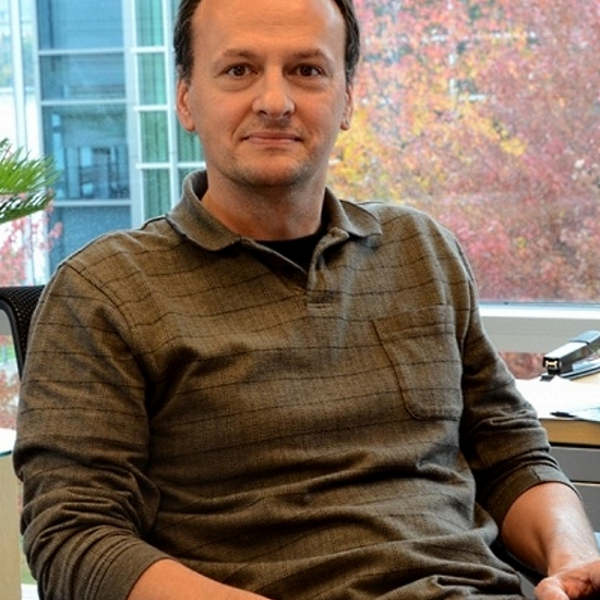Etienne L. Sibille
PhD

The research goals of the Sibille lab have consistently focused on translational research aimed at identifying the cellular and molecular bases of depression, and specifically of the mood, affect and cognitive components of the illness. Studies in the laboratory encompass parallel investigations in postmortem brains of depressed and control subjects, and in rodent genetic and environmental models, with the aims of characterizing the primary pathology of depression, and assessing causal links between identified molecular changes or candidate neurotransmitter systems and mood regulation. Current projects include translating human postmortem findings on the role of the GABA microcircuitry in mood regulation, and specifically of reduced somatostatin-positive dendritic targeting interneuron function.
In parallel studies, we have demonstrated that biological pathways affected during aging of the human brain largely overlap with neuropsychiatric and other neurological disease pathways and may in fact promote diseases. This provides a compelling rationale for investigating aging and diseases simultaneously, and most importantly a novel strategy for identifying novel mechanisms of brain disorders. These latter hypotheses are now being tested in parallel in the human postmortem brain and in large epidemiological studies of subjects at the vigor-to-frailty transition.
The goals/vision of the lab are: (1) To further develop new understandings of mechanisms underlying mood disorders, (2) To develop strategies for new therapeutic approaches, and (3) for bringing them to the clinic; (4) To develop a new model of drug development based on the integration of best aspects of academic, biotech and pharmaceutical strategies. To reach these goals, the research program is being developed along three inter-related units (1) to characterize the primary pathology in human samples and relevant animal models, (2) to investigate mechanisms and assess the validity of biological targets in cell-based systems, and (3) to perform robust and streamlined pre-clinical rodent studies for testing therapeutic strategy at the behavioral and molecular/cellular levels.
Graduate student projects will center on addressing cellular, molecular and systems questions related to these models, using a variety of techniques. Examples are listed below:
Cell-specific molecular pathology of depression in human postmortem brain and genetic mouse models. The goal is to characterize intrinsic biological vulnerabilities of specific cell populations in the context of depression in the human postmortem brain and in genetic mouse models. Expertise and methods of investigation: Neuroscience, neurobiology of disease, laser capture microscopy, single cell population analysis, molecular biology (DNA, RNA, protein), genomics, mouse genetics, mouse/human anatomy, histology, microscopy.
Mechanisms of brain accelerated aging in depression. Based on the hypothesis that pathophysiological mechanisms of major brain disorders, including depression, stem from normal age-related processes, non-dividing and long-lived neurons have adopted strategies to counter the biological hallmarks of aging. The goals are to characterize those adaptations in the human postmortem brain and to test mechanisms in various experimental models (c.elegans, cell-based systems, rodents, etc). Expertise and methods of investigation: Neuroscience, laser capture microscopy, single cell population analysis, molecular biology (DNA, RNA, protein), genomics, bioinformatics, human anatomy, histology, microscopy, biochemistry, cell biology.
Preclinical studies of antidepressant activity. Assess novel targets based on human primary evidence of pathology in depression, develop strategy (pharmacology, mouse genetics), implement evaluation program (integrated behavior, anatomy, molecular). Expertise and methods of investigation: Neuroscience, mouse genetics, rodent behavior, molecular biology (DNA, RNA, protein), neuropharmacology, viral vector strategies, rodent surgery, stereotaxic injection, anatomy, histology, microscopy.
